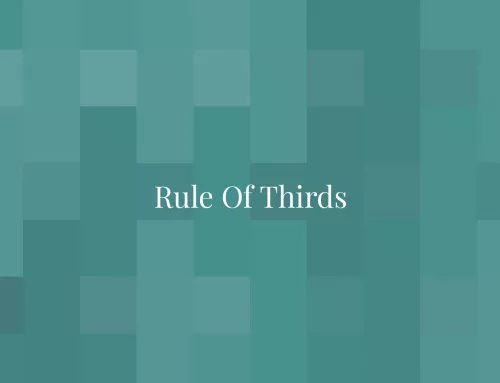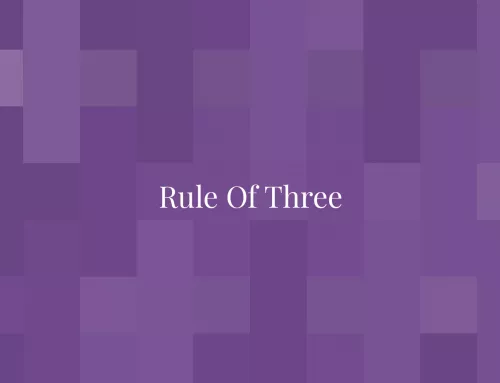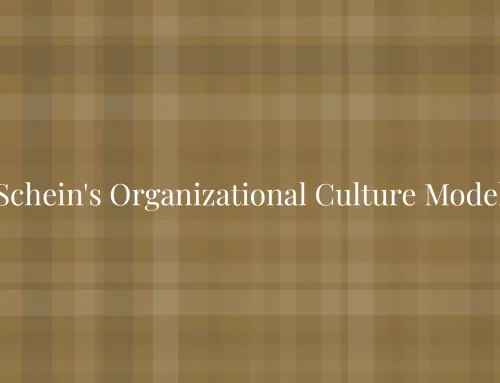Consulting is an intense, fast-paced profession. But, not everybody is cut out for a consulting career. You will work long hours, travel a lot and be under stress. However, consulting provides exceptional opportunities to work with executives, progress quickly in your career, collaborate with talented people, and to travel to new places.
Structured thinking
This is at the core of everything consultants do. As a consultant, you’re in the business of deriving order from chaos. Hence, you’re expected to properly structure problems, both large & small. For example, you may face yourselves in such situations as:
- How do we approach the client’s overall situation that challenges the client’s existence?
- What should we deliver as interim findings by date X if we want achieve Y by this date Z?
- How do I plan my day, so I can deliver the model X for my Manager by 17:00 hours, so I can catch my flight at 19:00 hours & update my colleagues on the White paper we’re targeting to publish this quarter?
You’ll be tackling such issues on an almost daily basis and get incredibly good at it. The ability to take any problem and break it down into smaller, discrete chunks is insanely valuable in all walks of life. Why? Because big, amorphous problems often seem intimidating, hairy and unsolvable at first, but once you break them down into bite sized chunks, they lose their intimidation factor and then are much easier to analyze & implement. In short, most engagements are about deductive problem solving. This means understanding the business context, properly framing the problem you’re trying to solve, breaking down the problem, building hypotheses, and proving or disproving those hypotheses through analysis. It’s simply about applying a structured method to analyzing & solving seemingly intractable business problems.
Storytelling & Presentation skills
This is an important skill that many quants people often disregard until they see it at work, often, the hard way. Succeeding in Management Consulting requires solid communication and soft skills. In this regard, I consider story telling a foundational skill that is at the heart of the consulting profession. Based on my personal experience, I consider this skill the most important in front-end & client-facing roles, such as sales, presenting and team management. As a consultant, you’re expect to perform all the three things to progress in your career.
However, the sales aspect will increase in importance when you’re a Partner or Senior Manager. Whether you’re explaining your work stream to your Partner / Senior Manager, presenting slides to a client or even convincing your team why a certain course of investigation is worth pursuing, you will need to tell them a story. You should always start with the Why?
- What will you do?
- Why is it important?
- How can it be achieved?
- In which time frame?
You will also learn to present to senior clients early on in your consulting career. The more senior the client, the more likely you are to practice with your team beforehand. Especially for junior consultants, these team feedback are extremely valuable learning opportunities. Usually, the team will offer you detailed feedback on everything from the content & structure of your presentation, storytelling through to your delivery, rhetoric & even body language.
Communication
Just as storytelling is a foundational aspect of consulting, all great stories start with fantastic communication. In consulting, you’ll learn to communicate with very intelligent and very busy people. These could be your Engagement Partner / Engagement Manager or the CEO of the firm you’re advising. You’ll learn basics & more sophisticated things, such as persuasive communications, tailoring your message based on your audience, written communications, etc. Mastering communications is obligatory for consulting success.
Simply put, an email to a CEO of a Fortune 100 firm should be very different from an email to a brand-new associate you’ve hired. As a consultant, you should be, both very direct & very political. You must get things done, while not offending anyone. You will learn to communicate critical problems to your Engagement Manager, team and clients in a way that makes them not sound like huge problems, while still making everyone aware that it’s a huge problem. Subsequently, you will lead or collaborate to solve those problems. You will manage all these challenges while maintaining your structured approach & composure. This is a valuable skill that goes a long way in your career, both through your consulting life & beyond.
Modeling complex business problems
You’ll get plenty of experience building models of all kinds. Many of those models will most likely be made in Excel. More recently, other analytics & Data Visualization tools, such as Tableau, Microsoft Power BI, etc. are also gaining popularity among consultants. Nevertheless, you may find a lot of Excel-based tools & models that you can use or learn from. Given the variety of engagements, you’ll gain hands on experience with several modeling techniques. For example, revenue forecasts, Monte Carlo simulations, pricing sensitivity analysis, etc. are some of the standard analyses that you will gain proficiency in.
Eventually, you will become very adept at modeling business problems using Excel. As you start building complicated models, you’ll quickly realize that the art of model building is much about structuring problems, building models (e.g. inputs, outputs, sensitivities), using advanced Excel formulas (e.g. INDEX-MATCH, VLOOKUP, SUMPRODUCT, etc.) & synthesis techniques (e.g. Pivot Tables, Visualizations, etc.). As consultants, your recommendations need to be fact-based. In this regard, you will master the art of collecting data from several sources, cleaning them up, building models, doing spot analysis, public math, etc. You’ll be pushed hard on your numbers, analysis, and what ifs.
Bias for action
Consultants move at breakneck speed. Sometimes, they work on multiple client engagements at the same time. In parallel, they may help with marketing initiatives, such as writing / contributing to white papers or research, practice development, hiring, etc. As a result, they are always looking for efficient ways to achieve stellar results with the least amount of work. This is an incredibly valuable skillset. The volume & variety of work and pace at which consultants move often builds a very strong bias for action and getting things done.
General business knowledge
Most consulting engagements usually last a few months long. Over 2–3 years, you would have worked with over ten different industries, clients, challenges and functions. You need to ramp up fast on the engagement and start problem solving once the engagement kicks off. After a while, you will start to see the commonalities and differences among companies, people, functions and cultures. You will quickly learn the different areas of business. Having a background in business helps, but you will learn a lot about different business, industries, etc. during the client engagements.
Decision-making skills
Each consulting engagement is about decision-making. Often, these are strategic decisions that impact the course of a company & its employees. As a consultant, you will help drive these decisions through your structured problem-solving approach & analysis. During the engagements, you will gain exposure to all the cultural, political and human dynamics that go into big decisions with your clients. Being a participant with a front row seat will help you as you grow into future leadership positions. You will hone your own decision-making skills during the engagements. You will have to get a ton of work done in a short amount of time. So, you will learn to prioritize, 80/20 analyses and drive home the message.
The network
Not necessarily a skill, but this is probably one of the most valuable things you will get out of your consulting career. You will get to work with some of the brightest & most motivated people throughout your consulting career. Consultants have gone on to do all sorts of things, from starting non-profits, to working at places to Uber or Google, to top-tier business schools or Private Equity jobs. Because it’s a very specific and unique lifestyle, working in consulting creates instant solidarity among your class. Usually, large consulting firms maintain an Alumni network. This network is a potential channel for future job, promotion or business opportunities, depending on your own career trajectory.




